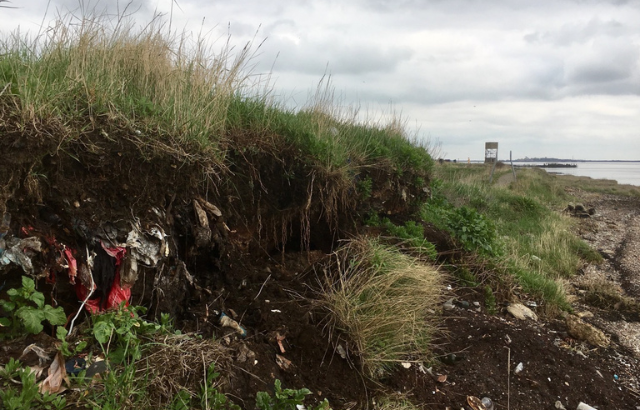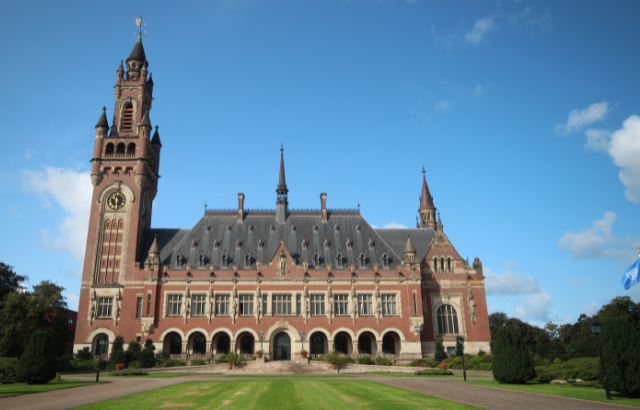Unseen Soviet Holocaust Film Footage Uncovered
To coincide with Holocaust Memorial Day on 27 January a new book has been published which uncovers previously neglected Soviet films that show the earliest ever cinematic records of the holocaust.

In the first study of its kind, First Films of the Holocaust by Dr Jeremy Hicks, a senior lecturer in Russian, at Queen Mary, University of London has re-discovered movies in the Russian state archives in Moscow, condemning Nazi Anti-Semitism dating back to the late 1930s and early 1940s.
It is often thought that films on the Holocaust began with US and British footage of the liberation of camps such as Belsen in 1945. However, archives seen by Dr Hicks reveal that Soviet film-makers started to record and depict the Nazi mass murder of the Jews in the Ukraine, Central and southern Russian regions as early as Autumn 1941 as they recaptured territory following the German invasion of the USSR.
Dr Hicks of Queen Mary’s School of Languages, Linguistics and Film explains: “These first films to depict and denounce the Holocaust constitute cinema’s initial attempts to grasp the enormity of what was happening. These films are pioneering, but deeply flawed, as the Soviet official account refused to accept the Jewish dead as a separate category of the Nazis’ victims, instead viewing them as part of the overall Soviet death toll.
“This attitude towards the war and Holocaust meant the films have been forgotten or ignored in Russian archives, and by the wider world. Even where they were seen they were discounted and distrusted as the product of the Soviet propaganda machine. But this footage clearly demonstrates that these were the first victims of the Holocaust and shows how the unfolding horrific events started in 1941 and then escalated into camps which were seen in later news films during 1945 by the US and British.”
The end of the Cold War and use of unpublished archive sources means that First Films of the Holocaust now brings these neglected works to public attention for the first time enabling a reassessment of the history of Holocaust cinema.
Dr Hicks added: “Using stills from the films, draft scenarios, internal discussion documents, telegrams and unpublished correspondence between cameramen and studios, enables us better to tell the story of the Holocaust before Auschwitz, that of the Soviet Jews, as well as that of the Soviets’ discovery of camps. The films also grant us a deeper insight into the Soviet Union’s relation to the Holocaust.”
Listen to a podcast of Dr Hicks talking about the earliest films of the holocaust at /qmpublic/media/av/podcasts/index.html
A book launch of First Films of the Holocaust will be held on Monday 4th February 2013 at the university’s Alfred Hitchcock Cinema, Arts One building, Mile End Road, London. Guest speakers will include Professor James Gow of the Department of War Studies at King’s College London and the chief archivist at the Imperial War Museums, Toby Haggith. The event is free and starts at 6pm.
Published by the University of Pittsburgh Press it is priced £22 and available from all good bookshops and Amazon. Signed copies will be available on the day at £20.
Spaces are limited so to book a place email j.g.hicks@qmul.ac.uk.
Notes to Editors
- This unseen film footages shows that the systematic mass killing of Jews began with the Nazi invasion of the Soviet Union in 1941
- As Soviets recaptured some of their territory from the Germans at the end of 1941 to 1943 they started filming and recording Nazi war crimes.
- Some footage had never been seen before, until Dr Hicks discovered it. Includes a lot of out-takes which were not included in final news reels and were basically left on the cutting room floor, but kept in archives.
- Footage includes correspondences /discussions/ telegrams between the cameramen and the studios.
- Many British historians tend to emphasize the Holocaust in camps such as Auschwitz, Belsen and Lublin and concentrate on sources from Germany and Poland. It is rare that original Soviet sources are used – so this is a relatively rare study.
- Dr Hicks’ study of the film footage from Ukraine, Central and Southern Russia clearly shows the process of how the unfolding horrific events started in 1941 and then escalated into death camps which are seen in later films during 1945 made by the US and British.
- There is some dispute over the exact figures and location of holocaust victims but it is estimated that between 1.5 and 2 million Soviet Jews were murdered during WWII.
Related items

10 December 2024

10 December 2024
